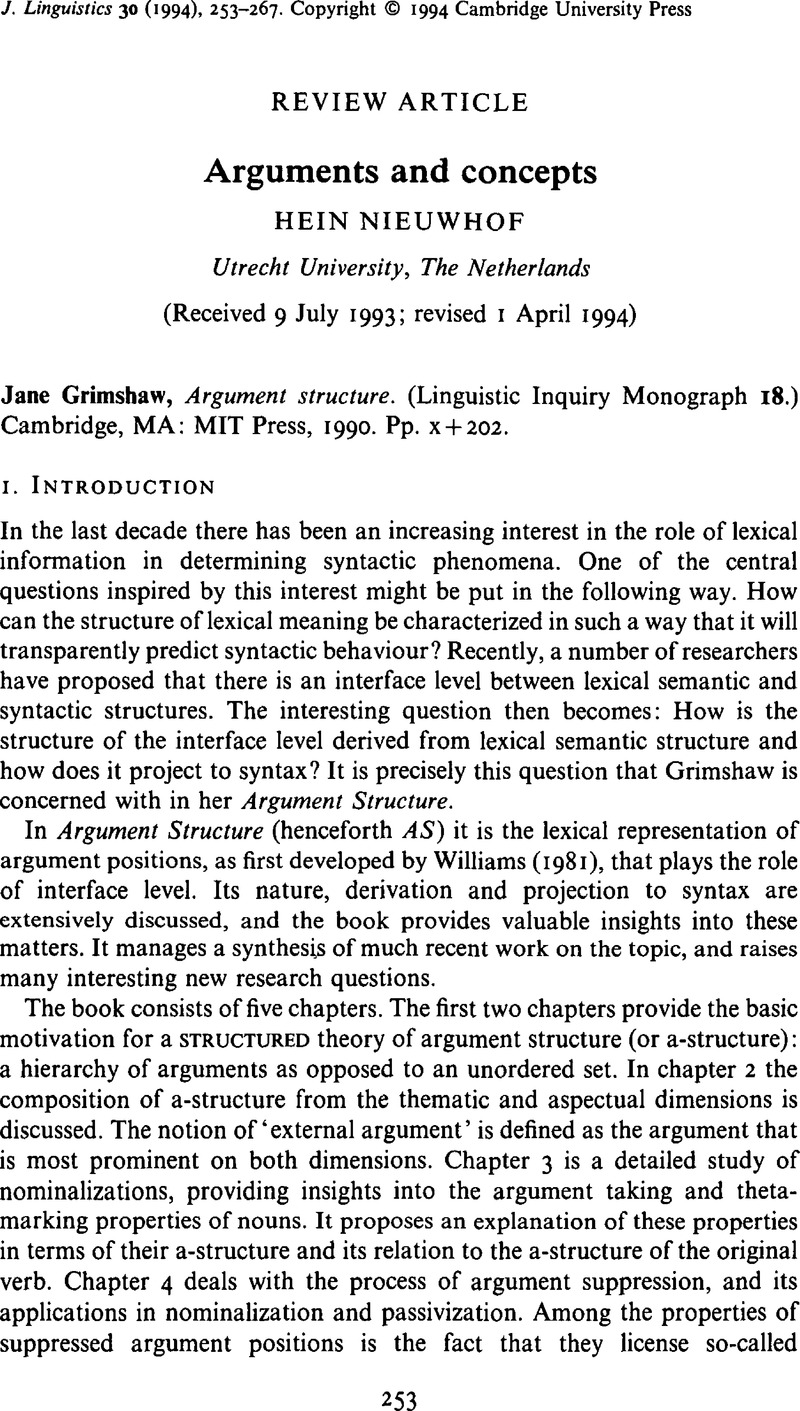Hale, K. &
Keyser, S. J. (
1988). Explaining and constraining the English middle. In
Tenny, C. (ed.)
Studies in generative approaches to aspect. (Lexicon Project Working Papers 24.)
Cambridge, MA:
Center for Cognitive Science, MIT.
41–
57.
Google Scholar 